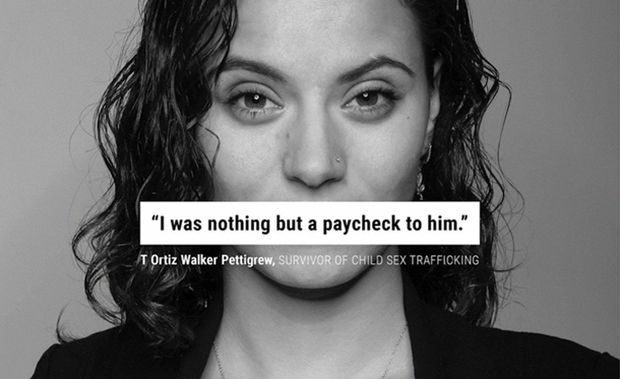
Human trafficking, particularly sex trafficking, has garnered significant attention and resources in recent years. While efforts are being made to provide support services to survivors, one crucial aspect that often receives inadequate attention is employment and training. It is essential to address the barriers that prevent sex trafficking survivors from finding meaningful employment outside the sex industry. By focusing on empowering survivors through job opportunities, we can help them rebuild their lives and break free from the cycle of exploitation.
As Evelyn Chumbow, a survivor of domestic servitude and anti-trafficking activist stated, “There are times when I feel like screaming on behalf of all human trafficking survivors, we need jobs, not pity!”. I have served in the roles of both a case manager and therapist for trafficking survivors. Across both roles, I have heard trafficking survivors express their exasperation and fear of not finding employment outside of the sex industry. What are the barriers?
Many sex trafficking survivors entered the industry at a young age, leading to educational disruptions. As a result, they often lack a high school diploma or equivalent qualification, making it challenging to secure traditional employment. Additionally, survivors may have criminal records reflecting prostitution charges, which can create further hurdles in the job market.
Expungement processes are complex and require special attention to enable survivors to overcome this barrier. Limited or inconsistent work history and discomfort in explaining their circumstances to potential employers can further impede their chances of finding employment. Transgender trafficking survivors face additional discrimination due to both the barriers already mentioned and their gender identity.
Furthermore, many have criminal records that reflect prostitution charges. Expungement can be extremely complex to navigate. Many have no prior work history or spotty work history. All of these factors can make employment difficult to secure.
Survivors may also not feel comfortable with, or have success with, explaining their circumstances to a prospective employer. Finally, transgender trafficking survivors may face increased discrimination in employment due to barriers already described, but also as a result of their gender identity.
Employment plays a pivotal role in empowering trafficking survivors and fostering their independence. However, conventional employment programs may not be suitable unless staff members are well-trained to address the specific challenges faced by survivors. Without appropriate support and opportunities, sex trafficking survivors may end up homeless or forced back into the sex industry out of desperation to support themselves.
To make a meaningful impact in the lives of sex trafficking survivors, it is crucial to focus on building their job skills and helping them secure employment. Some programs designed to serve trafficking survivors incorporate a job skills and employment component. One program that does a great job in this area is Thistle Farms, which was featured in the documentary A Path Appears.
While survivors may not possess a traditional work history, they have valuable skills gained through their survival experiences. Despite enduring unimaginable circumstances, they possess inner strengths, hope, and a desire to support themselves and contribute to society. Many survivors express a strong desire to find meaning in their experiences as well as help others who have been trafficked.
At a recent conference held by the Thomson Reuters Foundation, many survivors voiced their need for skills training and employment. As one trafficking survivor stated, “Once we escape, there is a whole new hell…You can rescue us all you want, but what we need is an opportunity. We want jobs, we want education, we want choices”.
Providing sex trafficking survivors with access to employment and training opportunities is essential for their long-term recovery and independence. By addressing the barriers they face and recognizing their strengths, we can help survivors build a brighter future. Collaborative efforts from organizations, policymakers, and communities are necessary to develop tailored programs and support networks that enable survivors to acquire job skills, secure employment, and realize their full potential. Together, we can create a society that not only rescues survivors but also provides them with the opportunities they need to thrive and rebuild their lives.













